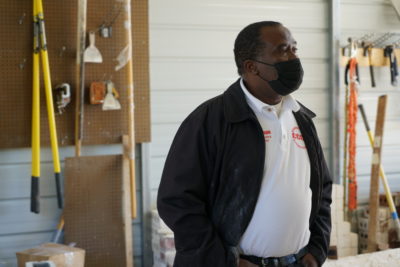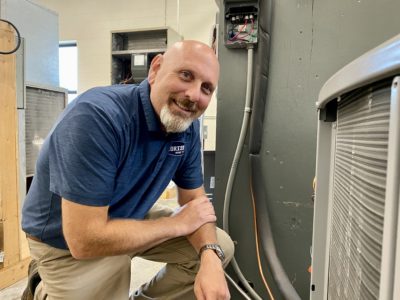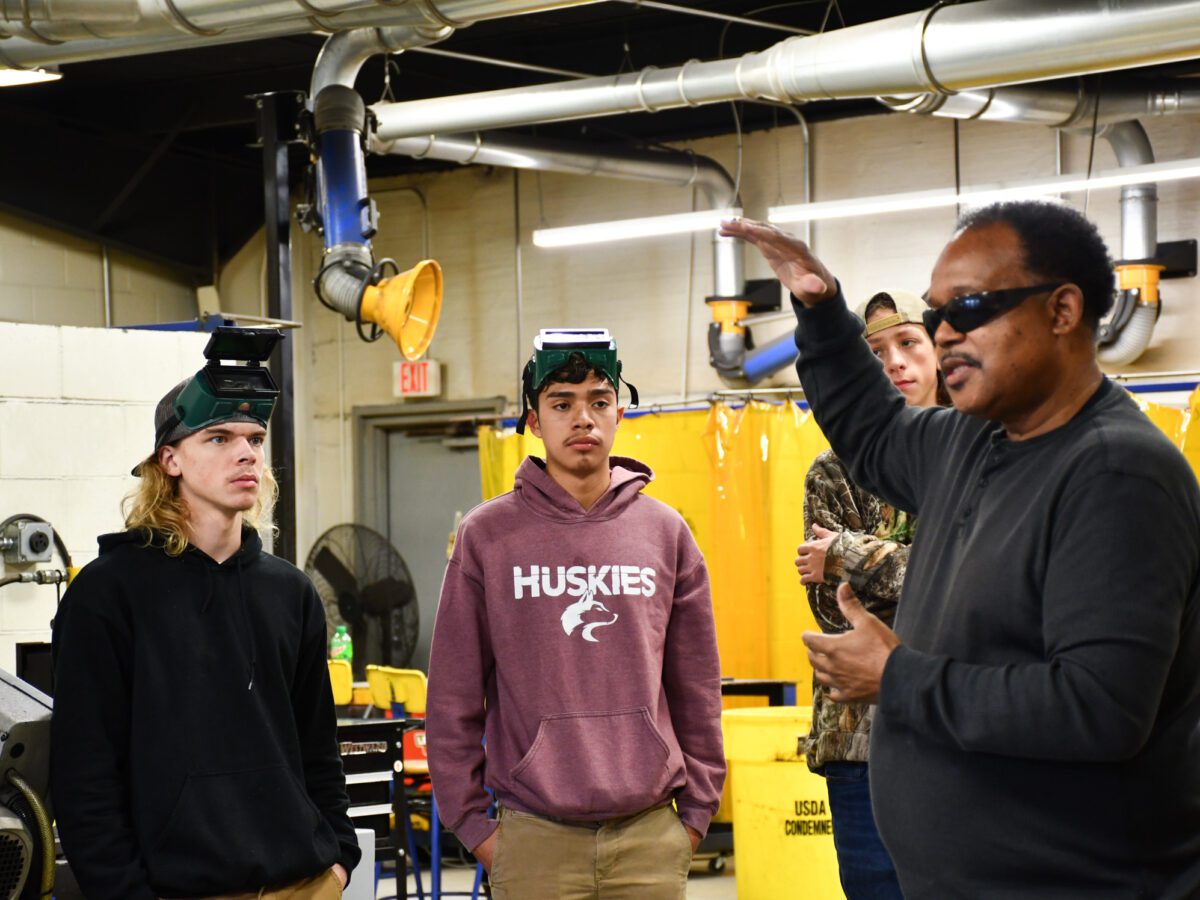
|
|
North Carolina is home to 58 community colleges, making it the third largest system in the country based on the number of colleges. As “open door” institutions, these colleges serve some of the most diverse student populations whose lived experiences are both broad and wide. Students range from working parents to first generation college-goers to those historically underrepresented in postsecondary education.
These experiences create unique needs among students – pushing community colleges to continually iterate practices and operations to help students succeed. In recent years, many North Carolina community colleges doubled down on the system’s guiding mission to minimize barriers to postsecondary education by revamping course schedules, examining inflexible policies, modifying operating hours, and partnering with employers to deliver relevant workforce training – to name a few.
Faculty practices have also started shifting. In 2021, the Belk Center for Community College Leadership and Research, Achieving the Dream (ATD), and the N.C. Student Success Center (NC SSC) developed four Teaching and Learning Hubs to support full- and part-time faculty as they work to cultivate a “culture of teaching and learning excellence on their campuses.”
What are Teaching and Learning Hubs, and why are they important?
The Teaching and Learning Hubs were designed to help faculty “learn about, adopt, test, and scale evidenced-based strategies that have increased equitable student success outcomes across the nation.”
There are four hubs – East, West, Central, and Piedmont – placing each college in a group proximate to their geographic location.
While the overarching structure consists of various partnerships, expert faculty lead at the hub level.
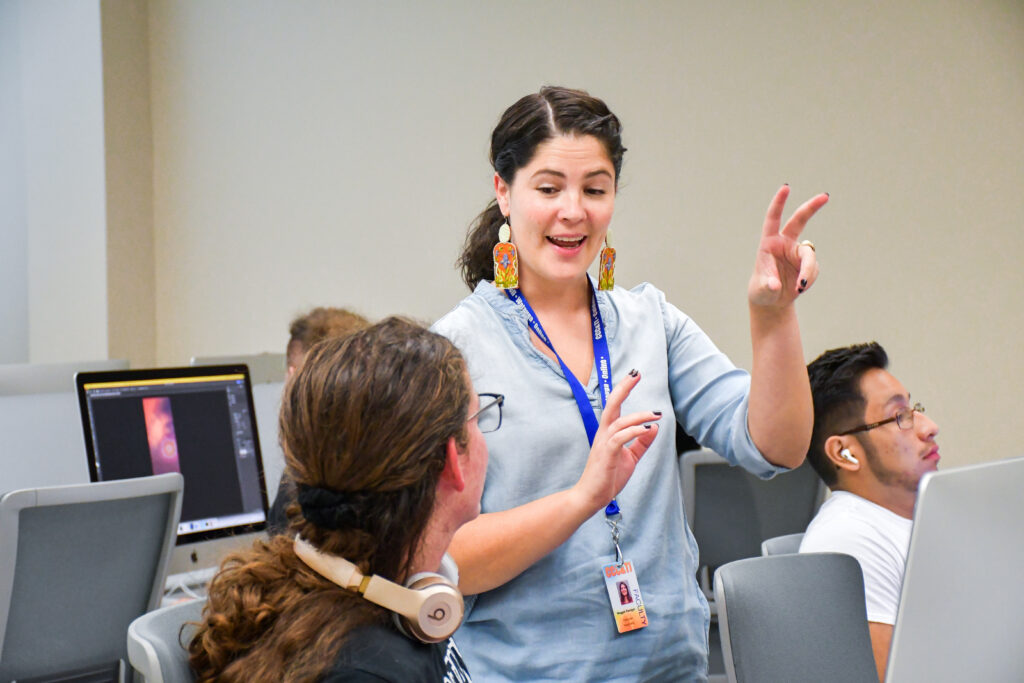
“It’s faculty supporting faculty. The hubs lift up great faculty in our state, encouraging them to share knowledge so that others can elevate their teaching practices,” said Dr. Audrey J. Jaeger, executive director of the Belk Center.
Each hub has two co-directors who have served as faculty for many years. The co-directors work alongside local faculty and campus leaders to develop program content through a local and national lens. This content covers a range of topics, including practices that build student learning and close equity gaps, culturally-responsive pedagogies that engage historically underrepresented students, and capacity-building to strengthen professional learning programs. Workshops and seminars are delivered to participants in person, virtually, or through a hybrid model. Faculty and staff educators attend sessions in their college’s hub.
The case for teaching and learning hubs
The North Carolina Community College System (NCCCS) has a rich history dating back nearly 70 years. W. Dallas Herring, one of the state’s first advocates of the system, believed education had the power to change communities and that it should be accessible to all.
In 2018, ATD president and CEO Dr. Karen Stout delivered the Belk Center’s annual Dallas Herring Lecture and urged community college leaders to prioritize teaching and learning on their campuses, calling it an “institutional reform that is long overdue.”
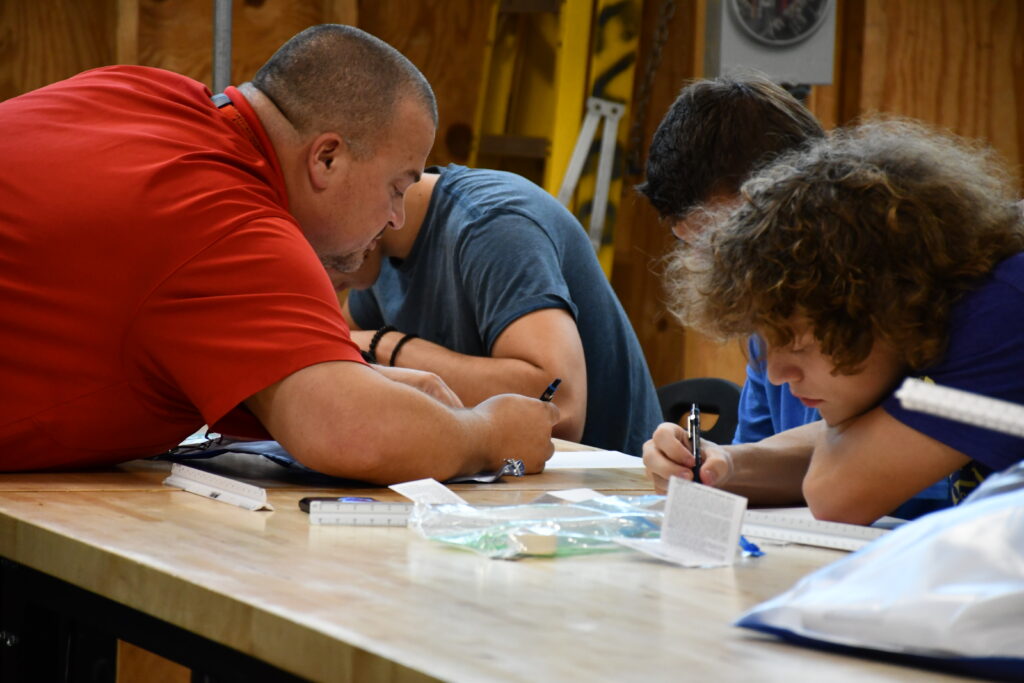
As Stout put it, faculty have the most frequent and ongoing contact with students, making them key for improving student outcomes.
“College leaders need to empower faculty to lead changes in pedagogy, rethink and align course and program student learning outcomes, build coherent and clear course and program sequences, and engage in advising in new ways,” Stout said in her 2018 address. “Teaching must be made more dynamic, relevant, culturally responsive, and engage and cultivate students’ ownership of what they learn. It also must support students in developing a growth mindset and connect them to academic and non-academic supports to help them stay on the path to completion and employment.”
But Stout was quick to point out that faculty cannot do this alone – nor should they.
“They need support and time for more reflective practice and to participate in ongoing collaborative professional development. They need supports and incentives to enable them to teach and learn in new ways,” she said.
In a recent opinion piece, Stout and Jaeger shared how the Teaching and Learning Hubs bridge a resource gap for community colleges.
“Many community colleges lack the resources, expertise and leadership focus to make this happen. While some institutions have Centers for Teaching and Learning to help faculty and staff members test promising approaches to teaching and student support, many — particularly smaller, rural community colleges — lack the institutional structures that would allow faculty to explore new strategies and learn from each other.”
— Stout and Jaeger
Launching North Carolina’s Teaching and Learning Hubs
Working alongside ATD and the NC SSC, the Belk Center conducted teaching and learning case studies at six community colleges across the state in 2019. A year later, they distributed a self-assessment survey to over 15,000 full-time and adjunct faculty within the NCCCS to learn about professional development needs and interests. Over 2,800 faculty responded to the survey, revealing faculty interest in new developments in their field or discipline as well as interest in new strategies for effective instruction. The Belk Center also surveyed the chief academic officers at each of the 58 community colleges to assess how their institution delivers professional learning opportunities to faculty.
In 2021, two of the four hubs, East and West, were launched.
Measuring impact
In one year, the East and West hubs delivered 44 professional learning opportunities to 522 employees at 38 of the 58 community colleges. According to the Teaching and Learning Hubs inaugural report, “the sessions focused on diversity, equity, and inclusion.” Some of last year’s topics included equitizing the syllabus, determining strategies to engage part-time faculty, and welcoming documents and technology in the classrooms.
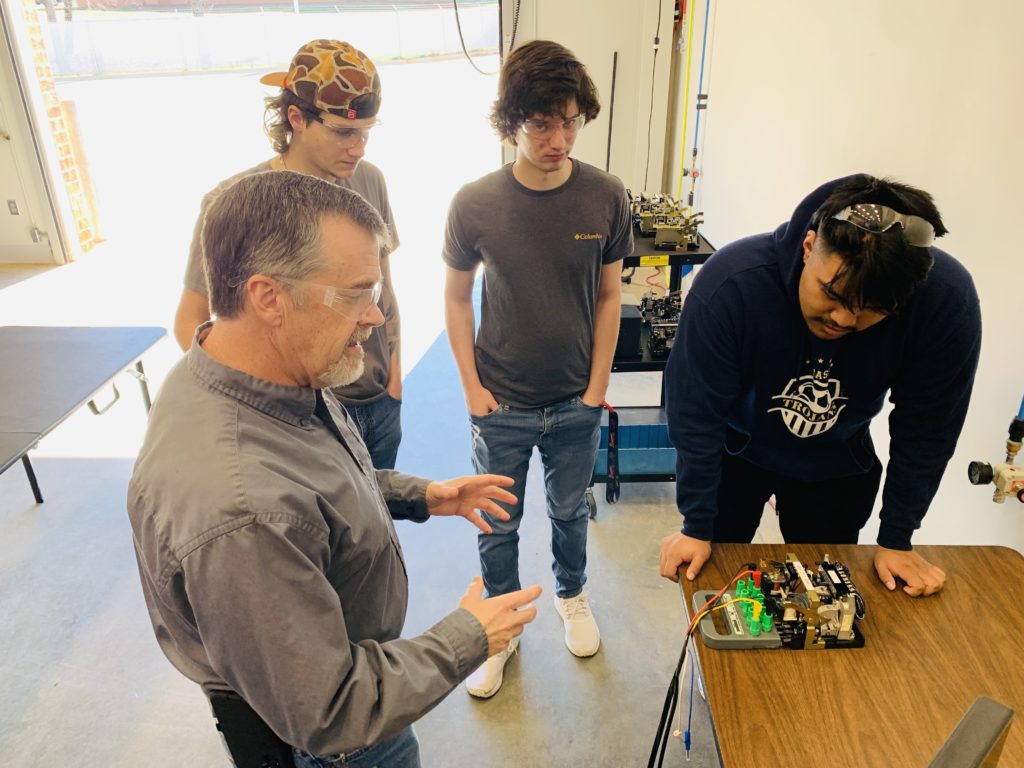
Professional learning through the hubs reached 279 faculty and staff instructors who taught a combined total of 2,411 courses. Most instructors taught an average of nine courses with an average of 16 students in each class. Of the 279 who participated, 37 instructors identified as persons of color.
“This experience has shown the need to support the professional development and growth for faculty and staff in our colleges. The work has been rewarding by connecting with other professional learners in affiliate colleges under the Hub.”
— Marye Vance, co-director of Central Hub / coordinator and teaching-learning center instructor for
Durham Technical Community College
According to the report, the two hubs reached 20,922 unique students who were enrolled in courses taught by instructors who participated in the professional learning. The same report noted 41% of students enrolled in those courses were students of color, 27% were adults 25 and older, and 41% of students received a Pell grant.
Looking ahead and getting involved
“The magic of this work is that the eight faculty Co-Directors have been sharing the reach of their efforts and the affirmation that they receive from their faculty peers, or Professional Learning Leaders (PLLs),” said Dr. Monique Colclough, the Belk Center’s director of programs and initiatives. “We’ve heard about the impact of learning communities, new instructional strategies, syllabi revisions, advising frameworks, and honoring the needs and identities of students in their classrooms.”
And interest continues to grow. Colclough said they recently expanded registration capacity by an additional 500 registrants and already need to add additional registrants.
Central and Piedmont Teaching and Learning Hubs launched in fall 2022. Those collaborating to support the hubs will continue examining how instructors make changes and how those changes impact student outcomes.
For more information about the hubs, click here. North Carolina community college faculty and staff can view a list of upcoming hub events here.



